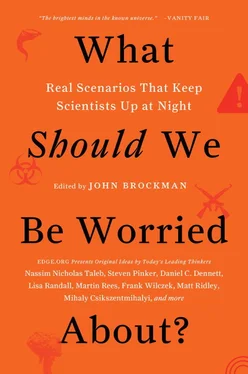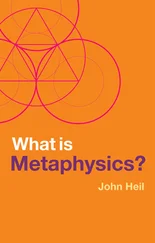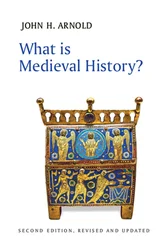Scientific intelligence met the triumphs that have led us here by positing theories and being extraordinarily suspicious about its own products. My worry is that we are going overboard in our contemporary fascination with imagination; in so doing, we risk losing track of the harsh independence of the world from the weakness of our minds.
J. CRAIG VENTER
Genomicist; cofounder & chairman, Synthetic Genomics, Inc.; founder & chairman, J. Craig Venter Institute; author, A Life Decoded
As a scientist, an optimist, an atheist, and an alpha male, I don’t worry. As a scientist I explore and seek understanding of the world(s) around me and in me. As an optimist I wake up each morning with a new start on all my endeavors, with hope and excitement. As an atheist I know I have only the time between my birth and my death to accomplish something meaningful. As an alpha male I believe I can, and I do, work to solve problems and change the world.
There are many problems confronting humanity, including supplying enough food, water, housing, medicine, and fuel for our ever expanding population. I firmly believe that only science can provide solutions for these challenges, but the adoption of these ideas will depend on the will of governments and individuals.
I’m somewhat of a Libertarian, in that I don’t want or need the government to dictate what I can or cannot do to guarantee my safety. For example, I ride motorcycles, sometimes at high speeds; I have full medical coverage and should not be required by the government to wear a helmet to avoid harming myself if I crash. I do wear a helmet, and full safety gear, because I choose to protect myself. Smoking is in a different category. Smoking is clearly harmful to health, and the best step smokers can take to change their medical outcomes is to quit smoking. If that were all there was to it, then the government shouldn’t regulate smoking unless it’s paying for the smokers’ health care. However, science has shown that secondhand smoke can have negative health consequences on individuals in the vicinity of a smoker. Therefore laws and rules to regulate where people can smoke are, in my view, not only reasonable but good for society as a whole.
It’s the same with vaccinations. One of the consequences of our ever expanding global population—particularly when coupled with poor public health, unclean water, and misuse of antibiotics—has been and will continue to be new emerging infections, including those from zoonotic outbreaks. Over the past several decades, we have seen the emergence of AIDS, SARS, West Nile, new flu strains, and methicillin-resistant Staphylococcus aureus (MRSA). In 2007, MRSA deaths in the United States surpassed HIV deaths. Infectious disease is now the second cause of death in the world, right behind heart disease and ahead of cancer. In 2011, in the U.S., there were twice as many deaths from antibiotic resistance as from automobile accidents.
There are many causes for the emergence of infectious diseases, but one significant factor is human behavior with regard to immunizations. The supposed link between immunizations and autism, which has been proved false, has led some parents to choose not to vaccinate their children, believing it to be a civil liberty issue akin to the choice of whether or not to wear a motorcycle helmet. But I contend that people who avoid immunizations are a major contributing factor to the reemergence and spread of infectious disease, in a way far more dangerous than secondhand smoke. Vaccines are the most effective means of preventing the spread of infectious diseases. There are no better examples than the elimination of polio and smallpox through mandatory vaccinations.
When new or old infectious agents such as viruses and bacteria infect the nonimmunized, genetic recombination can occur, creating new versions of such agents, which can then infect the population that was immunized against the existing strains. We see this occurring with almost every type of infectious pathogen, and—most troubling—we are seeing it here in our own industrialized, wealthy, educated country. There are pockets of outbreaks of diseases such as whooping cough; the emergence in the Middle East of a novel disease-causing coronavirus; illness at Yosemite National Park caused by hantavirus; and the emergence in farm communities of a variant influenza virus (H3N2v) that spread from swine to people. Last year’s flu came earlier and was more virulent than in previous years; Boston declared a state of medical emergency because of the number of flu cases and deaths.
Avoidance of vaccination creates a public health hazard. It is not a civil liberty issue. The unvaccinated, coupled with antibiotic resistance and with the decrease in animal habitats (which promotes zoonotic transfer of disease-causing agents) together make for a potential disaster that could take humanity back to the pre-antibiotic era. I thought we learned these lessons after such global pandemics as the plague and the outbreak of 1918 flu that killed 3 percent of the world’s population, but clearly without modern science and medicine we will be destined to relive history.
OUR INCREASED MEDICAL KNOW-HOW
ESTHER DYSON
Board member & investor in health care, human capital, & aerospace startups; chairman, EDventure Holdings; former chairman, ICANN (Internet Corporation for Assigned Names & Numbers); author, Release 2.1: A Design for Living in the Digital Age
We should be worried about the consequences of our increasing knowledge of what causes disease and how that knowledge will affect human freedom.
It’s exciting that we can figure out what kind of diet and behavior will keep most people well, and it’s good to use that knowledge. But that raises the question of who bears the responsibility, if people don’t. Indeed, does society have the right to interfere beforehand precisely because society bears some of that responsibility, if only by assuming the burden of health-care costs? It calls to mind the medical irony of the cure being worse than the disease or the immune reaction worse than the pathogen.
In this case, the trigger is our increasing knowledge of how we make ourselves sick—or how we can keep ourselves healthy: proper diet, regular exercise, no smoking, limited drinking, sufficient sleep. It’s clear that a squeaky-clean lifestyle (and just for good measure, add avoidance of stress) is the key to good health for most people and to reducing medical costs for society as a whole.
In addition, our knowledge of genetics and specific markers for susceptibility to disease is growing. Certain people with genetic predispositions to certain conditions need to take additional measures to stay healthy. Over time, we will know more of these specific correlations and be able to identify—if we want—people with predisposition to certain diseases (and therefore increased responsibilities?).
The thing to worry about is how society handles this knowledge, both in general and for the specific people who carry extra burdens. We all know of artists and others who are at least somewhat crazy. Many of them avoid treatment for fear—justified or not—of losing their creative gifts. Other people simply want to be themselves rather than some medicated version. And while much medical knowledge may be true, not all of it is. Certainly it keeps changing. Many drugs and other treatments don’t do much; others cause collateral damage. How much is an extra month of life worth, if you’re diminished by the side effects of life prolongation?
In short, the notion of unpredictable health catastrophes is giving way to something closer to flood plains. People are rightly asking whether society should pay to protect people who live in predictably dangerous areas, refuse to wear helmets while riding motorcycles, and so on. But when somebody actually undergoes such a catastrophe, even a predictable one, attitudes change and the government offers disaster relief. Such rare occasions are becoming more common.
Читать дальше












